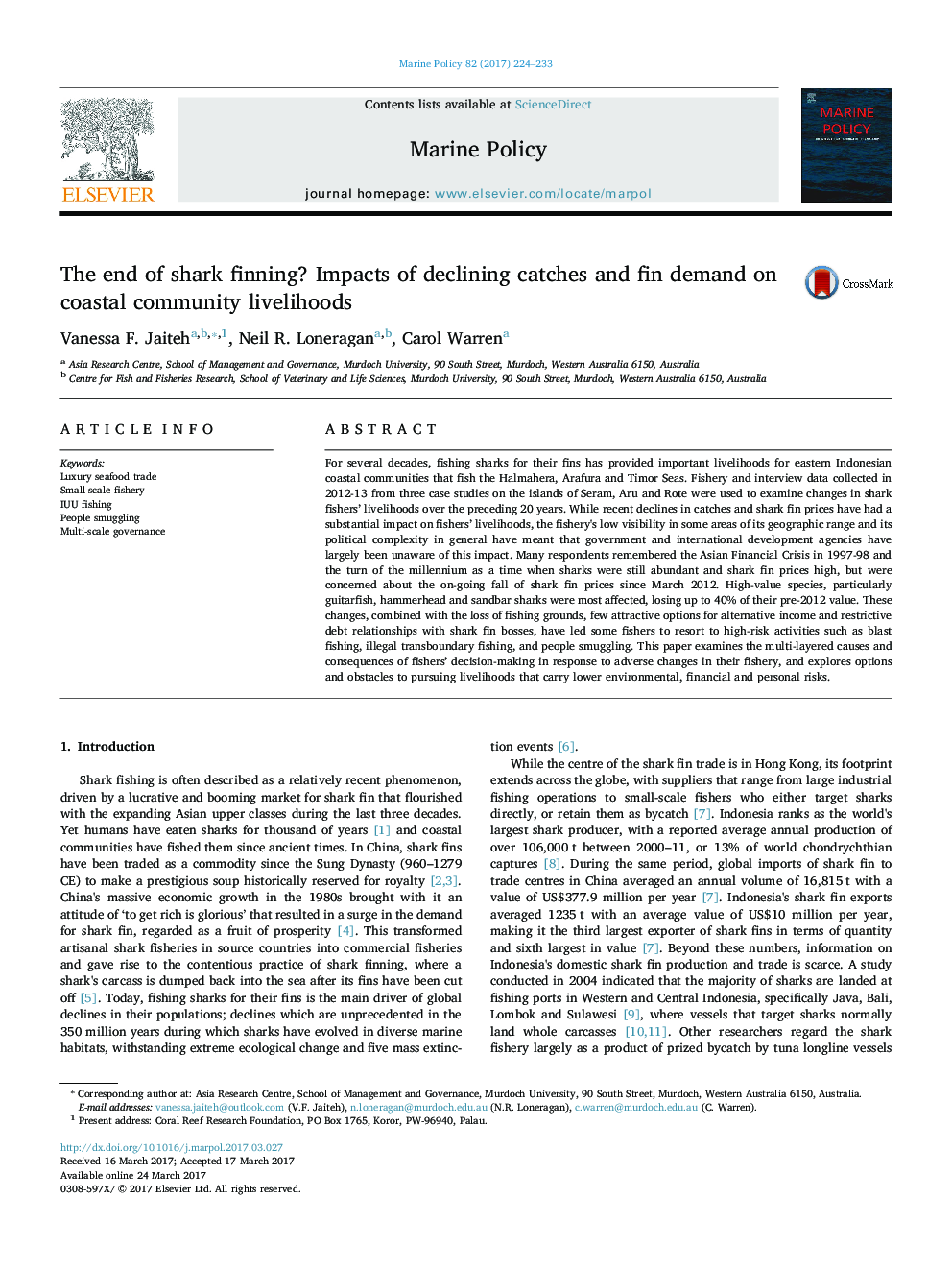| کد مقاله | کد نشریه | سال انتشار | مقاله انگلیسی | نسخه تمام متن |
|---|---|---|---|---|
| 5118279 | 1485497 | 2017 | 10 صفحه PDF | دانلود رایگان |
- We use a transdisciplinary approach to examine shark fishing livelihoods.
- Declining shark fin prices and catches have adversely affected fishers' livelihoods.
- The 2012 drop in shark fin prices caused a 40% reduction in value of some species.
- Economic pressure, e.g. through debt, has led to high-risk livelihood activities.
- Sustainable fisheries development must link global to local scales of governance.
For several decades, fishing sharks for their fins has provided important livelihoods for eastern Indonesian coastal communities that fish the Halmahera, Arafura and Timor Seas. Fishery and interview data collected in 2012-13 from three case studies on the islands of Seram, Aru and Rote were used to examine changes in shark fishers' livelihoods over the preceding 20 years. While recent declines in catches and shark fin prices have had a substantial impact on fishers' livelihoods, the fishery's low visibility in some areas of its geographic range and its political complexity in general have meant that government and international development agencies have largely been unaware of this impact. Many respondents remembered the Asian Financial Crisis in 1997-98 and the turn of the millennium as a time when sharks were still abundant and shark fin prices high, but were concerned about the on-going fall of shark fin prices since March 2012. High-value species, particularly guitarfish, hammerhead and sandbar sharks were most affected, losing up to 40% of their pre-2012 value. These changes, combined with the loss of fishing grounds, few attractive options for alternative income and restrictive debt relationships with shark fin bosses, have led some fishers to resort to high-risk activities such as blast fishing, illegal transboundary fishing, and people smuggling. This paper examines the multi-layered causes and consequences of fishers' decision-making in response to adverse changes in their fishery, and explores options and obstacles to pursuing livelihoods that carry lower environmental, financial and personal risks.
Journal: Marine Policy - Volume 82, August 2017, Pages 224-233
